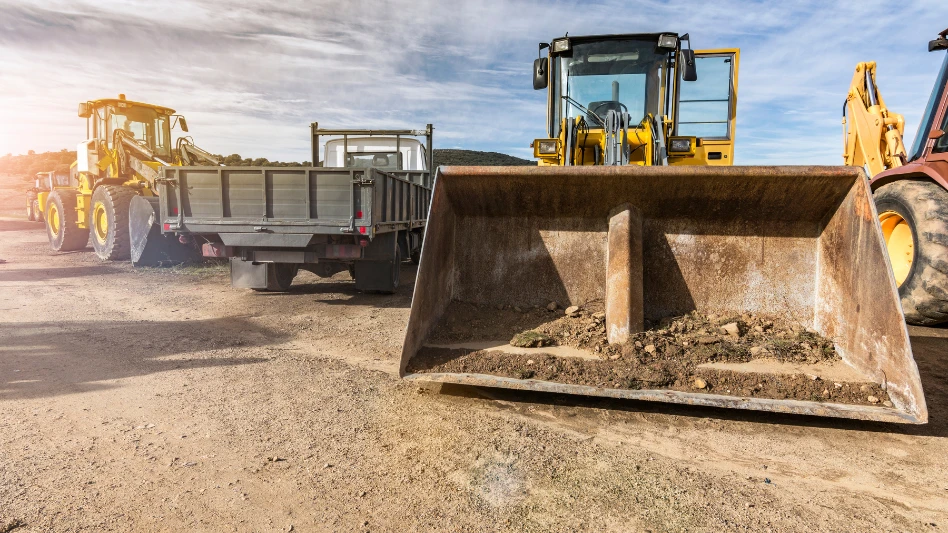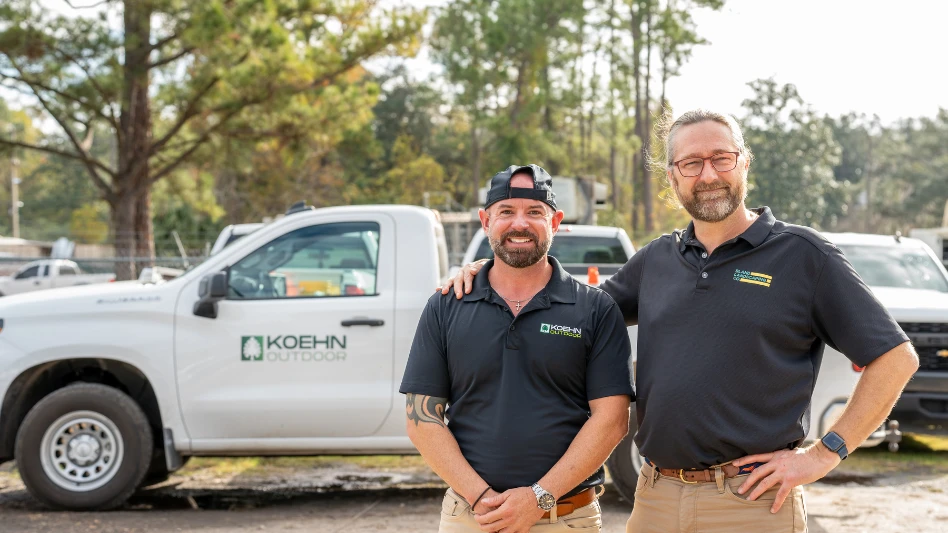 Courtesy FINNAs commercial construction slows, hydroseeding firms are working to stay afloat. Here’s how two companies fight price pressure and untrained competition.
Courtesy FINNAs commercial construction slows, hydroseeding firms are working to stay afloat. Here’s how two companies fight price pressure and untrained competition.
Trouble Ahead
When you only have a few ingredients, each one has to be great to make the final product stand up. That’s the philosophy for Dennis Richmond, vice president of the Wiley, Texas-based Hydromulch Services.
Richmod uses wood fiber mulch, lots of good fertilizer and a polyacrylamide – a type of polymer additive that conditions the soil, opening it up and preventing erosion from rainfall.
“You get what you pay for. You’re always going to find a contractor that will do it cheaper,” he says. “Pretty soon you can’t afford to do it right. The trend is inferior product or less product in the tank. They don’t end up with a good stand of grass. We’re not willing to do that. Just don’t go down that road; make it as good as you can.”
Hydromulch works with landscape contractors on large commercial turf establishment at schools, churches or office buildings. Hydroseeding makes up about 70 percent of its $2 million-a-year business; the rest comes from other erosion control services.
 Business is down this year for the nine-employee company, Richmond says, but it’s relying on its two decades in business to buoy it through the tight times. Richmond’s company is dependent on construction, and as such it will feel a larger hit next year, and in 2011.
Business is down this year for the nine-employee company, Richmond says, but it’s relying on its two decades in business to buoy it through the tight times. Richmond’s company is dependent on construction, and as such it will feel a larger hit next year, and in 2011.
“When construction slows down, it’s going to affect us,” he says. “We’re seeing most of our trouble next year.”
This is Richmond’s third or fourth recession, and he says he doesn’t panic any more. The company has reduced overhead, costs and even profit margins, and has gone back to its customers to strengthen their relationships.
“We know it will turn around eventually,” he says. “If you survive … then you’ll be in a good position to take advantage.”
What makes that survival difficult is competing companies that use inferior products and bungle jobs, which can cause people to lose faith in hydroseeding and push them toward sod farms.
Richmond works mainly with TurfMaker hydroseeding equipment. He’s been using its machines since he entered into the business 22 years ago, and says the company supports its clients – something he recommends contractors look for in their equipment suppliers.
“A lot of it was my relationship with Jim Lincoln,” Richmond says of the TurfMaker president. Lincoln himself has come out to inspect and repair malfunctioning machines at a Hydromulch job site. “You want to talk to the people who stand behind it. That’s the way Jim is, and that’s the way his company is.”
Learning the Business
Bobby Thomas started mowing lawns, but quickly moved into erosion control, and now Reel Neet Erosion Control in South Haven, Miss., does between $6 and $7 million a year in revenue and has 60 employees. He mostly works for developers. Now he’s installing 10 acres of turf at a natural gas pipeline.
Thomas says that as construction has slowed, he’s had to look farther away from his headquarters to find work. He recommends contractors learn as much as they can about the business before they make the decision to bring hydroseeding services in-house.
 “Right now, it’s a bad time to be getting into the business,” he says. “They should learn everything they can, ‘cause there’s a lot of people out here that think they know how to hydroseed.”
“Right now, it’s a bad time to be getting into the business,” he says. “They should learn everything they can, ‘cause there’s a lot of people out here that think they know how to hydroseed.”
Thomas uses Finn equipment; it was the first hydroseeder he bought and he has stuck with them. At his current pipeline job, he has one mounted to an old Army truck and another on a bulldozer. The site is so big, and the terrain so hilly, he has to use other trucks to push the machines up steep grades, then pump water up to two miles away.
“It’s kind of an unusual job,” he says. “Getting your water to it, that’s a challenge.”
The author is managing editor of Lawn & Landscape magazine. Shoot him an e-mail at cbowen@gie.net.

Explore the January 2010 Issue
Check out more from this issue and find your next story to read.
Latest from Lawn & Landscape
- Analysis of an entrepreneur
- Terra Nova's Sedum Conga Line variety wins Best of 2024 Perennial award
- Different ways to distribute
- Case's 580EV electric backhoe loader wins Good Design Award
- Davey Tree promotes Dan Herms to VP, GM of Davey Institute
- Caterpillar's Cheryl H. Johnson set for April retirement
- Registration open for sixth annual Lawn & Landscape Technology Conference
- 12 interview questions to help you hire winners





